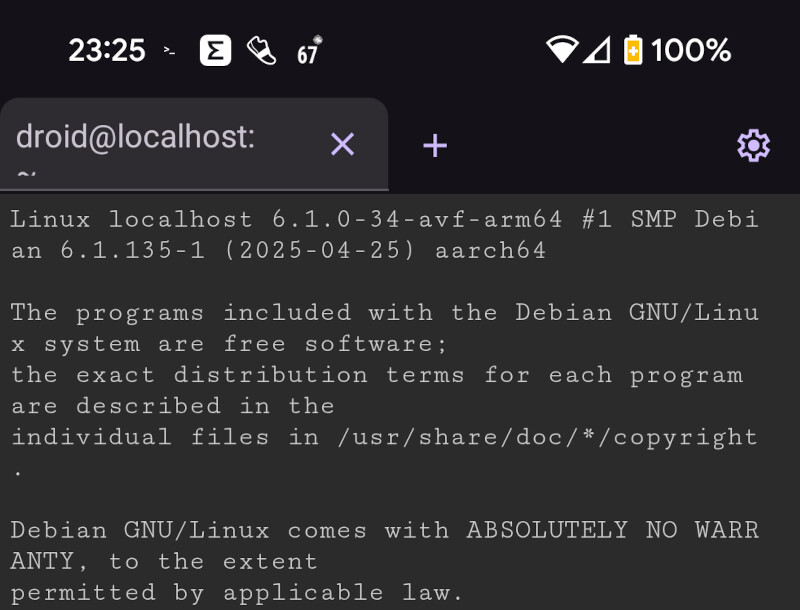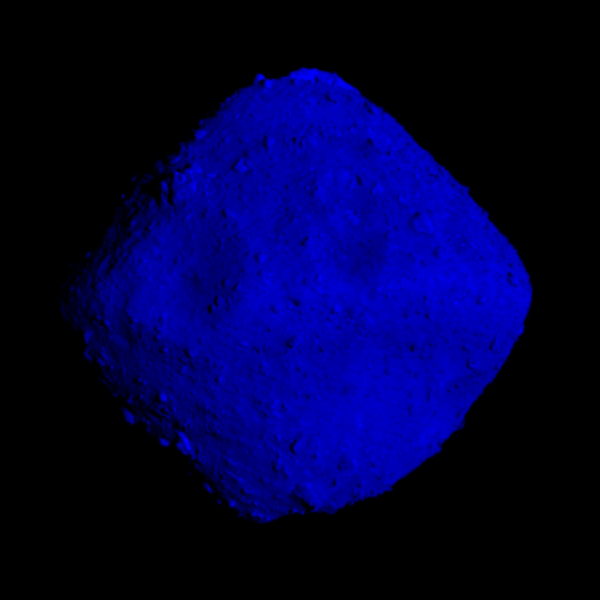| Previous
Page |
PCLinuxOS
Magazine |
PCLinuxOS |
Article List |
Disclaimer |
Next Page |
ICYMI: Farmer's Insurance Data Breach Impacts Over One Million Individuals |
by Paul Arnote (parnote)
 Image by Gerd Altmann from Pixabay Wired and Business Insider have removed news features written by a freelance journalist after concerns they are likely AI-generated works of fiction, according to an article from the Press Gazette in the UK. Freedom of expression non-profit Index on Censorship is also in the process of taking down a magazine article by the same author after concerns were raised by the Press Gazette. The publisher has concluded that it “appears to have been written by AI”. Several other UK and US online publications have published questionable articles by the same person, going by the name of Margaux Blanchard, since April. Most of the published stories contained case studies of named people whose details the Press Gazette was unable to verify online, casting doubt on whether any of the quotes or facts contained in the articles are real. Astronomers using NASA's James Webb Space Telescope have discovered a newfound moon orbiting icy Uranus, the seventh planet from the sun, according to an article from Space.com. The moon, known as S/2025 U1, is just 6 miles (10 kilometers) or so in diameter, which made it invisible to NASA's Voyager 2 probe during its 1986 flyby of the planet, as well as rendering it undetectable by other telescopes. But then came the powerful James Webb Space Telescope (JWST). A team led by scientists at the Southwest Research Institute (SwRI) in Colorado made 10 different 40-minute exposures of Uranus using JWST's Near-Infrared Camera (NIRCam) in order to find the small moon. Its discovery brings the total number of known Uranian moons to 29.
Threat actors are leveraging a Unicode character to make phishing links appear like legitimate Booking.com links in a new campaign distributing malware, according to an article from BleepingComputer. The attack makes use of the Japanese hiragana character,  Image by Darwin Laganzon from Pixabay Farmers Insurance disclosed a data breach impacting the personal information of more than one million individuals, according to an article from Security Week. According to its website, Farmers Insurance serves roughly 10 million households (19 million insurance policies) across the entire United States, offering car, property, life, commercial and other types of insurance. The notification samples submitted to state authorities are redacted, but a security incident notice posted on the Farmers Insurance website reveals that the compromised data includes names, addresses, dates of birth, driver’s license numbers, and last four digits of Social Security numbers. On the morning of August 19, 2025, residents of Middletown, Ohio, a quiet Midwestern city of 50,000 people, arrived at City Hall expecting business as usual, according to an article from Forbes. Instead, they walked into a surreal and almost dystopian scene. A father hoping to secure a birth certificate for his newborn son was turned away at the health department window. Citizens lining up to pay taxes or utility bills were told the systems were down. Even the police department’s non-emergency line went silent. “Man, everything closed down,” one resident said. In that moment the routines of Middle America collided with the dark reality of modern cybercrime. This was not a global capital or a Wall Street bank. It was a community in the heartland suddenly brought to its knees by a cyberattack that crippled essential municipal services, a scenario more fitting for a thriller like Leave the World Behind than for an Ohio city on a summer morning. City leaders called it a “cybersecurity incident.” Residents called it chaos.
Virtually EVERYONE is jumping on the AI bandwagon (most of it needlessly). If you doubt that statement, you must have been hiding under a very large rock for the past couple of years. But, according to an article from Lifehacker, you should probably be careful about asking AI to help find a phone number. The article details how scammers have leveraged AI to lure you into a trap. Keeping in mind that AI  Partial screenshot from my own Google Pixel 8 Whoa! Say what?! Android now allows users to access a full-fledged Linux terminal! It’s fairly common knowledge that Android runs on a Linux kernel. Now, Google has made it possible to run a bona fide Linux terminal on your Android device. In fact, an article from ZDNet details the steps to installing, launching, and using the Linux terminal on your Android device. Please, be careful. This definitely isn’t for those who normally avoid the Linux command line. But, if you’re comfortable with the Linux command line, still be careful. Still, this “new ability” opens up accessibility to a LOT of additional powerful tools for you to use on your Android device(s). If you’re interested, check out the steps outlined in the article. Keep in mind that this new feature is still considered “experimental,” however. Consumer credit reporting giant TransUnion warns it suffered a data breach exposing the personal information of over 4.4 million people in the United States in late July, according to an article from BleepingComputer. BleepingComputer learned the data was stolen from its Salesforce account. TransUnion is one of the three major credit bureaus in the United States, alongside Equifax and Experian. It operates in 30 countries, employs 13,000 staff, and has an annual revenue of $3 billion. It collects and maintains credit information on over 1 billion consumers worldwide, with approximately 200 million of those based in the U.S. This information is shared with 65,000 businesses, including lenders, insurers, and employers. These attacks have been conducted by the Shiny Hunters extortion group, and more recently, by a cluster tracked as UNC6395. After publishing this story, BleepingComputer confirmed with two sources, including ShinyHunters, that TransUnion's data breach is linked to these Salesforce attacks. Google revealed that a cybercriminal group known as the ShinyHunters hacked a database of their accounts through the cloud-based software provider Salesforce, exposing the roughly 2.5 billion Gmail and Google Cloud users worldwide to possible breaches, according to an article from Yahoo! News. Google’s Threat Intelligence Group (GTIG) said it first discovered a breach in June and, by August, became aware of bad actors using “overlapping tactics, techniques, and procedures” to access networks and accounts. Those tactics include social engineering, such as impersonating IT support reps in phone conversations, primarily targeting English-speaking users at multinational companies. GTIG said the data obtained was “basic and largely publicly available business information” but warned that ShinyHunters “may be preparing to escalate their extortion tactics by launching a data leak site … likely intended to increase pressure on victims.”  Open-source developer Josh Ellithorpe announced the creation of a new GIMP plug-in dubbed "Dream Prompter" for bringing the power of Google's Gemini 2.5 Flash Image Preview model to this open-source photo/image editing software, according to an article from Phoronix. Google recently announced Gemini 2.5 Flash Image (Nano Banana) as their latest efforts for an AI image editing model. The Dream Prompter plug-in for GIMP brings the power of that Gemini model to this open-source app that is a popular free software alternative to Adobe Photoshop. Coincidentally, the GIMP plug-in itself was created with the help of the Claude AI model. The Dream Prompter allows easily providing an AI prompt within GIMP and enjoying the fruits of that AI generated work instantly within GIMP, either as a new image or modifying an existing image. A Google Gemini API key is required for use. The hottest new phone is Tin Can, a 'landline' for kids, according to an article from Business Insider. Tin Can is a kid-friendly WiFi phone that replicates an old-fashioned landline. It's aimed at parents who want to delay giving their kids a cellphone. "It's important for kids to have social autonomy," the cofounder tells Business Insider. Tin Can is a phone that runs off your home's WiFi. It's similar to a regular VoIP phone, except that it has parental controls so that only approved contacts can call, and only during approved hours. There's also a free plan where Tin Can users can call only other Tin Can users. Threat actors are once again using Meta's advertising platform to distribute malware, according to an article from Lifehacker. This time, it's a form of Android spyware known as Brokewell, and it's spreading through a malvertising campaign on Facebook. According to researchers at Bitdefender, cybercriminals are running ads that promise free access to TradingView Premium, a market tracking and investment app, for Android mobile users. Clicking on the fraudulent ads, which use TradingView's branding and, in some cases, images of Labubus, leads to users downloading and installing malware on their devices.  A federal jury on August 1 found that Meta violated the California Invasion of Privacy Act, the state's wiretap law, by collecting data from a period-tracker app without user consent, according to an article from Ars Technica. Plaintiffs in a class-action case proved by a preponderance of evidence that Meta intentionally eavesdropped on and/or recorded conversations using an electronic device, said a verdict form released yesterday in US District Court for the Northern District of California. Plaintiffs also proved that they had a reasonable expectation of privacy and that Meta did not have consent from all parties to eavesdrop on and/or record the conversations, the jury found. The lawsuit was filed in 2021 against Flo Health, maker of an app for tracking periods, ovulation, and pregnancy. Facebook owner Meta, Google, and app analytics company Flurry were added as defendants later. The plaintiffs settled with Flo Health, Google, and Flurry before the trial, leaving Meta as the only remaining defendant. Scammers are once again impersonating PayPal and trying to trick users into handing over access to their accounts and their cash, according to an article from Lifehacker. The latest email campaign alerts recipients to a new (fake) transaction and payment profile and urges them to take action to set up their account. This scam has some convincing elements and several red flags. At first glance, this email seems like it really does come from PayPal: The sender address is service[at]paypal[dot]com, a legitimate PayPal domain, and paypal.com is listed in the signed-by field. However, scammers are able to spoof the email in the "From" field to make it look legitimate when it isn't. The layout looks relatively similar to other PayPal emails, including the company's branding and footer. If you hover over the links, including the call-to-action button to "set up your profile," they appear to go to a real PayPal site. A commonly prescribed antidepressant may also strengthen the body’s defenses against cancer, according to new research from UCLA, according to an article from SciTechDaily. The study, published in Cell, showed that selective serotonin reuptake inhibitors (SSRIs) improved the cancer-fighting ability of T cells and reduced tumor growth in several types of cancers across both mouse and human tumor models. Medications such as Prozac and Celexa raise serotonin levels — often referred to as the brain’s “happiness hormone” — by blocking the action of a protein called the serotonin transporter (SERT). Although serotonin is most often linked to mood regulation, it also influences many processes throughout the body, including digestion, metabolism, and immune system function.  Sucralose is a popular sugar substitute for people who are cutting calories or managing blood sugar levels, but new research by the University of Pittsburgh and UPMC Hillman Cancer Center suggests that the artificial sweetener may not be the best choice for patients undergoing cancer immunotherapy, according to an article from ScienceDaily. Publishing recently in Cancer Discovery, a publication of the American Association for Cancer Research, the study found that patients with melanoma and non-small cell lung cancer who consumed high levels of sucralose had worse response to immunotherapy and poorer survival than those with diets low in the artificial sweetener. Strikingly, supplements that boosted levels of the amino acid arginine mitigated the negative effects of sucralose on immunotherapy in mice, an approach that could now be tested in clinical trials. The European Commission announced in the first week of September that it’s fining Google €2.95 billion (just under $3.5 billion), according to an article from TechCrunch. The commission found that Google had violated European Union antitrust rules by favoring its own advertising services. Specifically, the commission said Google “abused” its “dominant positions” by favoring its ad exchange AdX in both its publisher ad server and in its ad-buying tools. The commission also said Google has 60 days to “bring these self-preferencing practices to an end” and “to implement measures to cease its inherent conflicts of interest along the adtech supply chain.” Social media (as we know it) is withering and dying, according to an article from NOEMA Magazine. Social media was built on the romance of authenticity. Early platforms sold themselves as conduits for genuine connection: stuff you wanted to see, like your friend’s wedding and your cousin’s dog. Even influencer culture, for all its artifice, promised that behind the ring–light stood an actual person. But the attention economy, and more recently, the generative AI-fueled late attention economy, have broken whatever social contract underpinned that illusion. The feed no longer feels crowded with people but crowded with content. At this point, it has far less to do with people than with consumers and consumption. In recent years, Facebook and other platforms that facilitate billions of daily interactions have slowly morphed into the internet’s largest repositories of AI–generated spam. Research has found what users plainly see: tens of thousands of machine–written posts now flood public groups — pushing scams, chasing clicks — with clickbait headlines, half‑coherent listicles and hazy lifestyle images stitched together in AI tools like Midjourney. It’s all just vapid, empty shiitake mushrooms produced for engagement’s sake. Facebook is “sloshing” in low-effort AI-generated posts, as Arwa Mahdawi notes in The Guardian; some even bolstered by algorithmic boosts, like “Shrimp Jesus.” The difference between human and synthetic content is becoming increasingly indistinguishable, and platforms seem unable, or uninterested, in trying to police it. Earlier this year, CEO Steve Huffman pledged to “keep Reddit human,” a tacit admission that floodwaters were already lapping at the last high ground. TikTok, meanwhile, swarms with AI narrators presenting concocted news reports and “what–if” histories. A few creators do append labels disclaiming that their videos depict “no real events,” but many creators don’t bother, and many consumers don’t seem to care.  Image by Michael Heck from Pixabay A few years after the first Earth Day in 1970, several bird species that once thrived in my region were nowhere to be found, according to an article from The Conversation. Some, like the passenger pigeon, were extinct. Others had retreated to more remote, wild areas of North America. In many cases, humans had destroyed their habitat by cutting down forests, draining wetlands and converting grasslands to agriculture. Pesticides such as DDT, air and water pollution, and the shooting of birds added to the drop in numbers. Birds are still declining across the continent. A recent study of 529 species found their numbers fell nearly 30% from 1970 to 2017. In 2025, nearly one-third of all North American bird species are declining; 112 bird species have lost more than half their population in the past 50 years. Yet, half a century after I started birding, I am starting to see a few long-missing species reappear as I ride my bike from my home through the village and surrounding farmland in rural New York. According to an article from Reuters, a sample obtained by NASA's Perseverance rover of reddish rock formed billions of years ago from sediment on the bottom of a lake contains potential signs of ancient microbial life on Mars, according to scientists, though the minerals spotted in the sample also can form through nonbiological processes. The discovery by the six-wheeled rover in Jezero Crater represents one of the best pieces of evidence to date about the possibility that Earth's planetary neighbor once harbored life. NASA released an image of the rock — a very fine-grained, rusty-red mudstone — bearing ring-shaped features resembling leopard spots and dark marks resembling poppy seeds. Those features may have been produced when the rock was forming by chemical reactions involving microbes, according to the researchers. Although metformin has been the go-to medication to manage type 2 diabetes for more than 60 years, researchers still do not have a complete picture of how it works, according to an article from ScienceDaily. Scientists at Baylor College of Medicine and international collaborators have discovered a previously unrecognized new player mediating clinically relevant effects of metformin: the brain. By uncovering a brain pathway involved in metformin's anti-diabetic action, researchers have discovered new possibilities for treating diabetes more effectively and precisely.  ESA Liquid water flowed across the surface of the asteroid that birthed the near-Earth object (NEO) Ryugu much later than scientists had thought possible, a new study finds, according to an article from Space.com. The discovery that water existed in liquid form a billion years after the parent body of Ryugu formed came from the study of rock samples collected from the NEO by Japan's Hayabusa2 probe between 2018 and 2019, and returned to Earth on Dec. 5, 2020. Carbonaceous asteroids like the spinning-top-shaped Ryugu have long been known to form from ice and dust in the outer solar system as the planets were forming around the infant sun around 4.6 billion years ago. Thus, objects like Ryugu are thought to contain a "fossil record" of unspoiled material from the dawn of our planetary system. However, before this research, scientists had thought that asteroid water activity only lasted for the earliest moments of solar system history. Lossless audio has been one of the most anticipated features on Spotify and now, finally, it’s started rolling out to Premium listeners in select markets, says a news release from Spotify. Premium subscribers will receive a notification in Spotify once Lossless becomes available to them. Whether you’re diving into a new album or revisiting old favorites, lossless delivers the highest music audio quality on Spotify. Lossless is part of our commitment to continually improve Spotify Premium, so fans can discover and enjoy the music they love. This highly requested feature takes your Premium experience to the next level. Together with popular features like DJ, Jam, AI Playlist, brand-new Mix, and daylist, as well as playlists curated by our leading global music editorial team, the world’s most popular audio streaming subscription service continues to get better. With Lossless, you can now stream tracks in up to 24-bit/44.1 kHz FLAC, unlocking greater detail across nearly every song available on Spotify. So you can enjoy new releases and your favorite tracks, in the highest quality, while being immersed in the music. A former WhatsApp executive has filed a lawsuit against Meta, alleging the company ignored serious security flaws that put billions of users at risk, according to an article from TechRepublic. The case, lodged in the US District Court for the Northern District of California, was brought by Attaullah Baig, who served as WhatsApp’s head of security from 2021 until earlier this year. Baig alleges that thousands of Meta and WhatsApp employees could access sensitive user data — including profile pictures, contact lists, and location details — without proper oversight. He also claims the company turned a blind eye to large-scale account hacking, which he says reached more than 100,000 accounts a day. According to the complaint, Baig repeatedly warned senior leaders, including Meta CEO Mark Zuckerberg, about the risks. Instead of addressing his concerns, the company allegedly retaliated by issuing negative performance reviews and ultimately fired him in February.  NASA has responded to claims – popularized by Harvard professor Avi Loeb – that the interstellar object 3I/ATLAS is a spacecraft sent to the Solar System by an advanced alien civilization, according to an article from IFL Science. On July 1, 2025, astronomers spotted an object moving through the Solar System at nearly twice the velocity of previous interstellar visitors ‘Oumuamua and Comet Borisov. The object, which was confirmed to be an interstellar comet with its own dusty coma, is far larger than the previous two, with an estimated nucleus (the rocky part of the comet, excluding its coma) of around 5.6 kilometers (3.5 miles). Early work showed that it is of huge interest to scientists, beyond being the third confirmed interstellar visitor. For a start, it may have come from a different region of our galaxy altogether, and may be far older than any of the known bodies in our Solar System. A recent analysis of the Sapphire Canyon mudstone core, drilled by NASA’s Perseverance rover in July 2024, adds new and convincing evidence to the ongoing search for life on Mars, according to an article from Earth.com. The study describes minerals and textures that – on Earth – are often linked to microbial activity. At the same time, the authors stress that some unknown, nonbiological chemistry could also explain the signals. “This finding by Perseverance is the closest we have ever come to discovering life on Mars. The identification of a potential biosignature on the Red Planet is a groundbreaking discovery, and one that will advance our understanding of Mars,” said acting NASA Administrator Sean Duffy. “NASA’s commitment to conducting Gold Standard Science will continue as we pursue our goal of putting American boots on Mars’ rocky soil.” The core was taken from a rock named “Chevaya Falls” in Neretva Vallis, an ancient river channel about a quarter mile wide that once fed Jezero Crater’s lake. After drilling, Perseverance sealed the sample for possible return to Earth, where laboratory instruments can perform tests far beyond the rover’s onboard capabilities. Parkinson's disease is associated with toxic clumps of the alpha-synuclein protein in the brain, which disrupt healthy cell communication, according to an article from ScienceAlert. Now, a new study shows another way this protein may damage brain cells. Researchers from Aarhus University in Denmark examined alpha-synuclein oligomers, smaller molecules that also accompany Parkinson's. Using a lab-made cell model, they found these oligomers can open up tiny pores in cell membranes. These breaches allow molecules to leak in and out of cells, potentially leading to chemical imbalances that may be a significant driver in the progression of the disease.  NASA/JPL Mars’s atmosphere may have once been hundreds of times thicker than it is today, acting as a blanket that protected it from frequent asteroids that ravaged other planets, according to an article from New Scientist. While the sun and most planets were still forming around 4 million years after the origin of the solar system, Mars was already almost complete. At this time, the planets existed in a vast ball of hot gas and dust that swirled around the young sun, called the solar nebula, which some planets would have temporarily absorbed into their atmospheres. However, once the solar nebula receded, it was thought that the planets would quickly have lost this gas, reducing the densities of their atmospheres. Now, Sarah Joiret at Collège de France in Paris and her colleagues think that Mars may have clung on to its gas for longer, forming a soupy primordial atmosphere that persisted. Shortly after the nebula receded, astronomers think the orbits of giant planets like Jupiter and Saturn shifted, which had the knock-on effect of disturbing the orbits of comets and asteroids, sending them hurtling towards the inner solar system where they bombarded the rocky planets. Trekkers rejoice! We told you last month about wishes among various filmmakers to make a new Star Trek series, called Star Trek: Year One. Well, it seems like it’s gaining traction. Since the fifth season of Star Trek: Strange New Worlds was announced to be the last in June, the showrunners have been suggesting a follow-up series, according to an article from TrekMovie.com. At Comic-Con they got more explicit, revealing “Star Trek: Year One” as the name for the potential show that would pick up after the final episode of Strange New Worlds, which they say will show James T. Kirk’s first day in command of the USS Enterprise. TrekMovie spoke to SNW executive producer and co-creator Akiva Goldsman to get an update on the pitch for this show, which would feature members of the SNW cast led by Paul Wesley as Kirk and Ethan Peck as Spock. U.S. Treasury Secretary Scott Bessent revealed on September 15th that a “framework deal” had been reached involving TikTok, according to an article from CNBC. Under the national security law, which would have come into effect on Wednesday, app store operators like Apple and Google and internet service providers would be penalized for providing services to TikTok’s U.S. operations if a deal was not reached. Under the framework deal, about 80% of TikTok’s U.S. business would be owned by an investor consortium that includes Oracle, Silver Lake and Andreessen Horowitz, the Wall Street Journal reported. As part of the arrangement, existing U.S. users would need to shift to a new app, according to the report.  Image by Teri Comroe from Pixabay Google and Apple’s app stores both have a reputation for being pretty trustworthy these days. It’s easy to assume that if an app is in either the iPhone App Store or the Google Play Store, it’s safe to download. But a new Google crackdown this week reminds us that this isn’t so clear-cut, according to an article from Lifehacker. Yesterday, a third-party security report revealed that Google had recently removed 224 malicious apps from the Android Play Store. Dubbed “SlopAds” apps by security company Human, which discovered the apps and wrote the report, these apps evaded Google’s usual security procedures and instead used a clever workaround to secretly install malware on users’ devices, even when downloaded straight from Google’s servers. The way these apps worked was that, if you downloaded them by searching for them through the Google Play Store, they would work as advertised with no malware dragging them down. Generally, these apps were pitched as simple utilities, or attempted to pass themselves off as more popular programs like ChatGPT, to try to trick users into downloading them. Not the best tools, certainly, but if accessed directly through Google, they wouldn’t hurt you. But the trick is that, if you downloaded one of these apps after arriving at the Play Store via one of SlopAds ad campaigns, it would also secretly download an encrypted configuration file that, after a few post-download checks, would install malware on your device. Once a device was infected, the app would then steal its information, and start using it to generate fake ad impressions on sites run by the scammers, maximizing profit. A new study points to a key bone-strengthening mechanism at work in the body, which could be targeted to treat the bone-weakening disease, osteoporosis, according to an article from Science Alert. The study, led by researchers from the University of Leipzig in Germany and Shandong University in China, identified the cell receptor GPR133 (also known as ADGRD1) as being crucial to bone density, via bone-building cells called osteoblasts. Variations in the GPR133 gene had previously been linked to bone density, leading researchers to turn their attention to the protein it encoded. Deep below the seabed, 80 miles off the coast of Yorkshire, is a remarkable crater that has divided scientists – was it, thrillingly, created by an asteroid crash? Or more mundanely, was it the result of geological salt movements? Today, the decades-long scientific debate can be settled. The Silverpit crater 700 metres below the seabed under the North Sea was in all likelihood created by a direct hit from an asteroid or comet about the size of York Minster that hurtled towards the Earth more than 43m years ago, according to an article from The Guardian. The 160-metre-wide asteroid smashed into the sea, causing a 100-metre-high tsunami, say scientists. It was probably a very bad day for any early mammals in the area – but not as bad as the consequences of the asteroid smash that wiped out the dinosaurs 66m years ago. The Silverpit crater is nowhere near the scale of the Chicxulub crater in Mexico, when an asteroid about 6 to 9 miles wide struck Earth, resulting in a mass extinction of 75% of plant and animal species. But it is still interesting and, as the only impact crater near what is now the UK, extremely important, experts say.  Google’s Gemini AI seems to be everywhere these days. It’s in your Gmail, it’s on your phone, and soon, it’ll be in your browser. While Google’s AI browser integration was already live for Google AI Pro and AI Ultra subscribers, it's now rolling out to everyone — and getting a bunch of new features, too, according to an article from Lifehacker. If you’re suddenly seeing a new Gemini button in the top right of your Chrome browser (in the same pane as your tabs), then you’ve already been hit with the update. If not, you may need to use the three-dots button in the top right corner and select Gemini in Chrome to turn it on, assuming you want to. If you're a bit skeptical about Gemini in Chrome, you can turn it off. Simply navigate to Settings > AI Innovations, and you’ll be able to turn off the Gemini button, as well as disable its keyboard shortcut. You can also restrict its permissions: Set everything to off, and it’ll be like it was never installed in the first place. Creatine. It's arguably one of the world's most researched supplements. Thousands of studies have been carried out over the past few decades evaluating its ability to increase muscle mass and overall strength. Creatine is a naturally occurring compound which is stored in our muscles, and helps our cells produce energy. It is a vital component in the ATP-CP system, the fastest, most powerful energy system in our bodies. Away from the gym, there is a growing, but still relatively limited, body of evidence to suggest it can also help with our short-term memory, mood and focus, according to an article from the BBC. TikTok, that worldwide popular app from ByteDance with strong ties to the Chinese communist government, has a new “owner” in the U.S., according to an article from Reuters. ByteDance will own less than 20% while TikTok US will be controlled by a mix of its existing U.S. and global firms as well as a significant number of new investors who have no affiliation with ByteDance, an official said. Investors will include Oracle and private equity firm Silver Lake. |

 , which can, on some systems, appear as a forward slash and make a phishing URL appear realistic to a person at a casual glance. BleepingComputer has further come across an Intuit phishing campaign using a lookalike domain using the letter L instead of 'i' in Intuit.
, which can, on some systems, appear as a forward slash and make a phishing URL appear realistic to a person at a casual glance. BleepingComputer has further come across an Intuit phishing campaign using a lookalike domain using the letter L instead of 'i' in Intuit.







